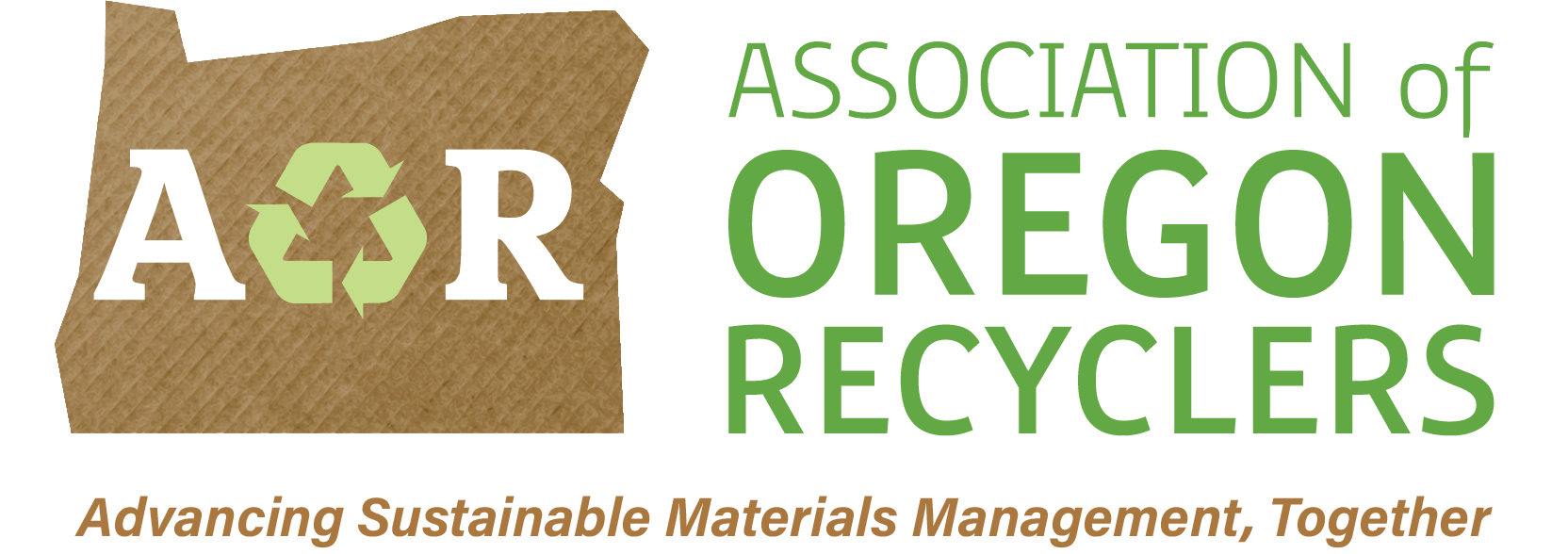AOR Conference Session Summary: “More Perspectives on Single-Use Plastics”
This summary is provided by Laura Gumpert, 2019 AOR Conference Scholarship Recipient
At this year’s Sustainable Oregon Conference, I attended the session entitled “More Perspectives on Single-Use Plastics”. This session gave the opportunity for further reflection and discussion on the topics addressed in the keynote, which focused on the multitude of global consequences we face from our reliance (and the projected growth of this reliance) on single-use plastics. David Allaway from Oregon DEQ facilitated the session, which featured a panel of experts with a diverse range of perspectives. We heard from Pete Chism-Winfield (City of Portland, BPS), Gary Panknin (PakTech), Peter Spendelow (Oregon DEQ) and Megan Ponder (MJP Consulting) who gave the keynote presentation.
The panelists began by sharing their backgrounds, perspectives on Megan Ponder’s keynote presentation, and takes on the complex issue. The panelists were responding to a number of questions: Is this the issue we need to focus on? What is the most pressing component of the issue? How do we best address it?
Pete Chism-Winfield discussed some of the local policy action that the City of Portland has taken in response to the plastics problem. He focused on the process of the proposed plastic straw ban (which evolved into a plastic straw, stirrer, utensils, and condiment packaging “by request” policy). Examining the successes and challenges of this process is important, as it helps inform future action and opens the door to many conversations about behavior change and the need to include multiple stakeholders.
Peter Spendelow had some controversial points to make. Are we too focused on plastics? It is certainly not the only material that presents problems. He argued for the importance of evaluating the full life cycle of materials and considering the upstream environmental impacts as well.
While there were certainly some areas of disagreement, there was also some very strong overlap in what the panelists thought about next steps. Many of the panelists agreed that Extended Producer Responsibility was an important part of the solution. We have a plastic waste problem because we have a plastic production problem--they are inherently linked and must be considered together.
It is clear that now is a critical time. Plastic packaging has huge, global impacts. Not only has it created immense pollution, but it is a major driver of global gas and oil demand. We have to jump and take action.
As someone who has participated in and attended several conversations/sessions on the plastics problem, I appreciated this deeper dive. I sometimes find myself growing impatient with all the talk about plastic straws (Is this the best we can do? Is this really what we should be putting so much effort into?), but this session made me reexamine my plastic straw fatigue. The straw discussion certainly isn’t the whole story and shouldn’t be the only area of focus, but it does inspire and inform further conversation, and this is extremely valuable. Getting the chance to hear all these varied, knowledgeable perspectives definitely broadened and challenged some of my thinking on the topic.
I work for Trash for Peace, a Portland-based environmental justice nonprofit. We work on several affordable housing sites, providing sustainability education programs, job opportunities focused on waste reduction, and more. I did wish that the conversation had focused a little more on considering the implications of some of the proposed single-use plastic alternatives or solutions. Yes, is it a problem that plastics are so cheap and abundant. However, it’s also important to recognize that many people can’t afford the current alternatives. Investing in a reusable water bottle, getting a subscription to GO-Box, purchasing a more durable razor, or buying in bulk are all positive steps, but are out of reach for many people in our communities. If we make plastics more expensive, who is impacted? Having the conversation about how we can reduce or eliminate single-use plastics is crucial, but the conversation must also ask: “how can we do this in an equitable way?”.
